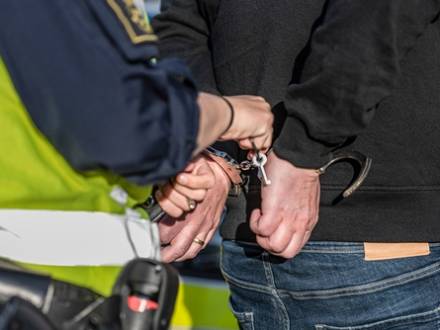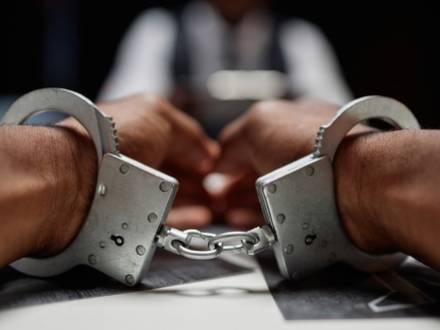Recent Blog Posts
What To Know About Social Media and Illinois Criminal Cases
 It is nearly impossible to downplay the importance social media has in our lives. Whether you use it to post and see pictures of your friends, stay on top of new trends, get yourself from Point A to Point B, find your next job or apartment, or anything else, social media has weaved its way into every aspect of the average person’s routine.
It is nearly impossible to downplay the importance social media has in our lives. Whether you use it to post and see pictures of your friends, stay on top of new trends, get yourself from Point A to Point B, find your next job or apartment, or anything else, social media has weaved its way into every aspect of the average person’s routine.
Criminal law is no exception. Things posted on social media can be used by both the prosecution and the defense as evidence or liability in any given case. In Illinois, there are legal guidelines dictating how social media can be incorporated in cases. A knowledgeable Illinois criminal defense lawyer can help you understand this and other aspects of your case.
How Can Social Media Be Used as Evidence in Court?
According to Illinois law, social media evidence can be admissible in court if it can be proven to be authentic and reliable. Authenticity can be established by proving who the content belongs to and showing that nobody else had access to the account when the content in question was created. Digital forensics, witness testimony, and defendant testimony can all be used to prove this.
What Does Ban the Box Mean and How Can It Help Me?
 One of the biggest challenges facing those with criminal records who have served their time and want to move on comes when seeking employment. A person who meets all the requirements and qualifications for a job and has relevant experience and other skills that would make him a good fit can feel confident when applying until the dreaded question is asked: "Have you ever been convicted of a crime?"
One of the biggest challenges facing those with criminal records who have served their time and want to move on comes when seeking employment. A person who meets all the requirements and qualifications for a job and has relevant experience and other skills that would make him a good fit can feel confident when applying until the dreaded question is asked: "Have you ever been convicted of a crime?"
A steady job is crucial for people trying to reintegrate into society, but if you are judged before you get a chance to explain your situation and whether you have learned from it, it can seem nearly impossible to get hired. Fortunately, Illinois recognizes this difficulty and has enacted certain measures to give people a fairer shot at getting hired. If you have a criminal record and are facing hiring discrimination, speak with a skilled Illinois criminal defense attorney about making sure your rights are protected.
Will My Teen Be Sent to Jail for Drinking at a High School Party?
 Laws surrounding alcohol consumption are clear with extensive public campaigns about who should not be drinking. However, it is an area of the law that many citizens tend to take less seriously than others. For example, while underage drinking is a clear violation of the law, it is a common occurrence, particularly at parties for underage high school students.
Laws surrounding alcohol consumption are clear with extensive public campaigns about who should not be drinking. However, it is an area of the law that many citizens tend to take less seriously than others. For example, while underage drinking is a clear violation of the law, it is a common occurrence, particularly at parties for underage high school students.
With many people violating the law, you might think the penalties associated with it are minor. The truth is that a teenager who is caught drinking could face significant consequences, including criminal charges and even jail time. If your child is facing underage drinking charges, speak with a qualified Aurora, IL criminal defense lawyer to understand your options.
How Is Underage Drinking Penalized in Illinois?
As is the law throughout the entire country, you need to be 21 years or older to legally drink alcohol in Illinois. Anyone younger who is found purchasing, attempting to purchase, possessing, or consuming alcohol can face serious criminal consequences. It is important to secure reliable legal representation if this happens because criminal charges can have a lasting impact on your child’s life and can harm their eligibility for employment, education, housing, and financial opportunities in the future.
Can My Lawyer Help Me Overcome Jury Bias Against Me?
 While many criminal cases in Illinois are settled out of court, many others go to trial for a judge and jury to decide the outcome. When your fate will be decided by a jury, it is crucial to understand the jury selection process and ensure that you are not punished for any biases jurors have against you. If you are concerned that you may face an unfair trial due to jury bias, speak with a qualified Kane County, IL criminal defense lawyer to understand your options.
While many criminal cases in Illinois are settled out of court, many others go to trial for a judge and jury to decide the outcome. When your fate will be decided by a jury, it is crucial to understand the jury selection process and ensure that you are not punished for any biases jurors have against you. If you are concerned that you may face an unfair trial due to jury bias, speak with a qualified Kane County, IL criminal defense lawyer to understand your options.
How Can the Jury Impact the Fairness of My Trial?
The Sixth Amendment of the U.S. Constitution protects your right to a fair trial. That means that the judge and jury on your trial need to be receptive to all the facts and be impartial when reviewing your case. If a juror is biased, his personal opinions can lead him to judge you unfairly regardless of the evidence demonstrating your innocence. If he is prejudiced against people in a certain ethnic group, and you are a member of that group, it is unlikely he will believe you and might automatically assume the worst about you.
Illinois Ghost Gun Laws: What You Need to Know
 In recent years, a new type of firearm has been on the market. Ghost guns are homemade firearms without a serial number, which means they are untraceable. They became popular due to the spread of online kits and DIY firearm parts, but with a recent high-profile case making headlines across the country, ghost guns are a growing concern in Illinois and nationwide. To understand how this recent development is regulated, speak with an experienced Elgin, IL criminal defense lawyer who has experience with gun law cases.
In recent years, a new type of firearm has been on the market. Ghost guns are homemade firearms without a serial number, which means they are untraceable. They became popular due to the spread of online kits and DIY firearm parts, but with a recent high-profile case making headlines across the country, ghost guns are a growing concern in Illinois and nationwide. To understand how this recent development is regulated, speak with an experienced Elgin, IL criminal defense lawyer who has experience with gun law cases.
What Are Ghost Guns?
Ghost guns are a type of firearm assembled from kits or parts that can often be purchased online. Some kits enable 3D printing to produce weapon components. They can be assembled at home and do not have serial numbers, making it harder for law enforcement to trace them when they are used in a crime. This makes them particularly attractive to people who do not want to be tracked and can pose a significant challenge for police trying to solve firearm-related crimes.
What Are My Rights During an Arrest in Illinois?
 Being arrested can be a frightening and overwhelming experience, particularly if this is your first time. However, when you are arrested, you have certain rights guaranteed by the U.S. Constitution and Illinois state laws. These rights are there to protect you against unnecessary harm and unfair treatment. Knowing your rights can help you stay calm and avoid mistakes that could impact your case. To learn more about your rights during an arrest, speak with an experienced Elgin, IL criminal defense lawyer.
Being arrested can be a frightening and overwhelming experience, particularly if this is your first time. However, when you are arrested, you have certain rights guaranteed by the U.S. Constitution and Illinois state laws. These rights are there to protect you against unnecessary harm and unfair treatment. Knowing your rights can help you stay calm and avoid mistakes that could impact your case. To learn more about your rights during an arrest, speak with an experienced Elgin, IL criminal defense lawyer.
The Right to Remain Silent
One of the most important and most commonly quoted rights you have when you are arrested is the right to remain silent. During an arrest, you need to provide the police with your name and whatever basic identifying information they ask for. Beyond that, you have the protected right to stay quiet and not answer their questions or give them information that could incriminate you or otherwise be used against you.
How Do Prior Convictions Impact an Illinois Criminal Defense Case?
 A past criminal record can weigh heavily on someone charged with a crime in Illinois. Prior convictions can have a big impact on a current criminal case. Understanding how is crucial for anyone facing legal trouble in Illinois. An experienced Elgin, IL criminal defense lawyer can explain how your previous convictions might impact your case and what options you have.
A past criminal record can weigh heavily on someone charged with a crime in Illinois. Prior convictions can have a big impact on a current criminal case. Understanding how is crucial for anyone facing legal trouble in Illinois. An experienced Elgin, IL criminal defense lawyer can explain how your previous convictions might impact your case and what options you have.
What Are Prior Convictions?
Anytime someone was found guilty of a crime in the past, they have a prior conviction. That can include serious felonies, misdemeanors, or even simple traffic violations. Illinois law allows prosecutors to bring up past convictions during a new criminal case, regardless of whether they are relevant to the case or how severe they were, and this can affect how the case is handled.
Impact of Prior Convictions on Sentencing
Judges sometimes give a more severe sentence to a defendant with a history of breaking the law because Illinois law allows for something called "sentencing enhancements" based on prior convictions. A criminal history might make a defendant subject to harsher punishments for a crime than they otherwise would be.
Can Second Chance Legislation Help Me?
 Illinois’s criminal justice system has been seeing some significant changes in recent years. A major focus of these changes is on helping individuals get a fresh start once they have served their sentence. Aptly known as second chance legislation, these changes aim to remove barriers like criminal records that can make it hard for people who have paid their debt to society to find housing or employment.
Illinois’s criminal justice system has been seeing some significant changes in recent years. A major focus of these changes is on helping individuals get a fresh start once they have served their sentence. Aptly known as second chance legislation, these changes aim to remove barriers like criminal records that can make it hard for people who have paid their debt to society to find housing or employment.
People who were charged with nonviolent offenses or have shown a willingness to change can benefit from this legislation. If you are interested in learning more about how second chance legislation might be relevant for you, speak with a skilled Kane County, IL criminal defense lawyer.
What is Second Chance Legislation?
The main focus of Illinois’s second chance legislation is on expunging (erasing) or sealing criminal records. Expungement means that all records of a conviction are erased, as if it never happened. It is a possibility for specific offenses. Sealing means that access to the criminal record is restricted but not completely erased. Either option can help people get a fresh start after having served their time. This is especially important for people who want to apply for a job, housing, or loans, which can be challenging with an accessible criminal record.
What Are Charges and Penalties for Illinois Traffic Violations?
 Whenever you get behind the wheel, it is important to understand what charges and penalties you might face if caught violating the law. With traffic violations ranging from minor offenses to serious crimes, consequences can vary widely.
Whenever you get behind the wheel, it is important to understand what charges and penalties you might face if caught violating the law. With traffic violations ranging from minor offenses to serious crimes, consequences can vary widely.
Whether you are caught speeding, running a red light, or driving under the influence (DUI), you need to understand what is at stake. If you have specific questions about charges you might face, an experienced Elgin, IL criminal defense lawyer can review your case and offer tailored guidance.
Common Traffic Violations and Their Penalties
Some of the most common traffic violations in Illinois include:
-
Speeding: If you were going less than 20 mph over the speeding limit, you could face a fine of $120-$150 and might get a few points on your driver’s license. Speeding over 20 mph faster than the speeding limit can result in fines of $150-$250, with more points on your license. Speeding over 35 mph above the limit can lead to charges of reckless driving, which is a criminal offense. You might face fines of up to $2,500, up to a year in jail, and your license might be suspended.
What Is Deceptive Practice and How Is It Punished?
 Getting charged with a crime can be an overwhelming experience. This can be particularly true if you do not understand what you are being charged with. Some charges are more commonly discussed and understood, but others that are less known about can be a source of confusion.
Getting charged with a crime can be an overwhelming experience. This can be particularly true if you do not understand what you are being charged with. Some charges are more commonly discussed and understood, but others that are less known about can be a source of confusion.
One example of a lesser-known crime is deceptive practice. If you are facing charges of deceptive practice, let a knowledgeable Elgin, IL criminal defense lawyer explain everything you need to understand and help you present a strong defense.
What Is Deceptive Practice?
One of the reasons why deceptive practice can be difficult to understand is because that title describes a wide range of criminal activity. The main characteristic of all the illegal actions that fall under the category of "deceptive practice" is that the defendant is accused of knowingly and intentionally misleading someone else for personal gain, and this is most often for financial gain.








